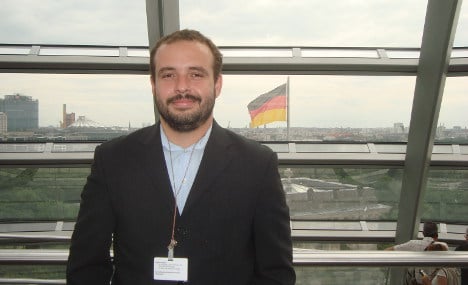Where are you located and what do you do?
I am located in Berlin. I arrived here in March to participate in the Internationales Parlaments Stipendium (IPS) with the German parliament. The program ended in July and I am now doing my Master’s at the Hertie School of Governance.
What brought you to Germany and how long have you been here?
IPS brought me here and I saw that it was the perfect opportunity for me to pursue a dream of mine – study in Germany once again. I was here in 2010 as part of an exchange program organized by the Verband der Deutsch-Amerikanischen Klubs (VDAC) and I wanted to come back in order to improve my German and learn the European-German aspect of politics. I have been here in Berlin since February 2013.
How did you land your job and do you have tips for anyone seeking similar work?
I highly recommend the IPS program to fellow American students. I applied and I had to go to an interview in Washington D.C. The program is a paid internship and it lasts five months. It places participants at the office of a German representative in order to get a hands-on understanding of German politics.
Is it important for you to be able to speak German in your position?
I was chosen for the IPS program after applying for it back in the United States. Like everything regarding scholarships and such programs, early preparation is key.
Find out the details as soon as possible and do not wait until the last minute to apply. Also, do not think that it is impossible. I was very scared at first due to my level of German, but in the end I was accepted.
A good level of German is necessary to participate, but this should not discourage anyone. My level was very low in comparison to other participants, but I did not let that stop me. Once I got here my German improved due to daily practice.
I recommend to anyone that would like to apply for the program the following – catch up on your knowledge of German politics and current events. I prepared back home by meeting with German friends and a German family that lived in Florida at the moment, but that I met here in Germany. Shows like Tagesschau are also a great way to prepare.
What are the best and worst parts about working in Germany?
I enjoyed working here in Germany because there is a lot of structure and one knows what to expect. I do not have any complaints.
Do you plan on staying?
I will be staying here for at least two years (the duration of my Master’s). If I find a job here in Germany or somewhere in Europe afterwards, I would be more than happy to stay.
The Local/tsb




 Please whitelist us to continue reading.
Please whitelist us to continue reading.
Member comments